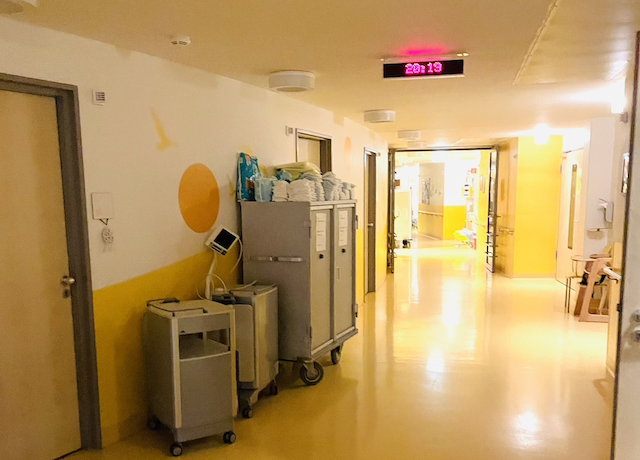The Future of Midwifery: A Concern Among Parents
Amidst rising concerns about maternal care, Swedish Hospital in Lincoln Square has announced the merger of its esteemed midwifery program with its obstetrics department. This decision prompts a broader conversation about the future of maternal healthcare and the importance of patient choice.
The intimate space of childbirth has traditionally been one where expectant mothers have sought the soothing guidance of midwives. However, the recent decision of Swedish Hospital in Lincoln Square to merge its beloved midwifery program with the obstetrics department has raised concerns among North Side parents.
Amy Karony's narrative is a reflection of this sentiment. Recounting her grueling two-day labor, Karony was moments away from requesting a caesarean section. In her vulnerable state, it was her midwife's calming intervention and guidance that helped her reconsider. Her gratitude was clear: "I was so grateful to have someone who could advocate for me when I felt so out of it.”
The success of Swedish Hospital's midwifery program is well-documented. It has been a beacon for parents, offering trusted guidance, valuable education, and a nurturing support network. However, citing "staffing challenges" and increased expenses due to the pandemic, the hospital has resolved to integrate midwives with physicians, assuring a "comprehensive continuum of care." This decision, however, hasn’t been met with universal approval.
 Photo by Khoa Pham
Photo by Khoa Pham
While midwives are licensed professionals, their approach stands apart from conventional obstetric care. Rooted in building relationships, they prioritize natural birthing processes, often resulting in healthier outcomes for both parents and newborns. Notably, the midwifery approach, as defined by the American College of Nurse-Midwives, encompasses comprehensive reproductive health services that extend from prenatal to postpartum care.
However, recent events at Swedish Hospital have indicated a devaluation of the midwifery program. Some midwives believe their voices have been sidelined in decision-making processes. The departure of two more midwives this summer suggests a potential dilution of midwifery care's distinct approach.
Elizabeth Oppert, a former midwife at the hospital, lamented the diminishing prominence of the midwifery program, noting that the culture and benefits midwives bring can truly reshape a hospital's environment. She emphasized, "But without a team of midwives, there won’t be midwifery-focused birth."
This merger also comes at a sensitive time. Across the nation, there's a noticeable contraction of reproductive care options. Moreover, maternal mortality rates have disturbingly been on the rise. Parents, former midwives, and researchers argue that this merger could further limit choices for expectant families.
But the hospital's defense is robust. Hospital spokesperson, Bill Ligas, stated that the collaborative model would offer patients a team of obstetricians and midwives throughout their pregnancy journey. Moreover, the hospital plans to expand its women's health facilities, hiring three new OB/GYNs and enhancing the birthing center.
Yet, the community's sentiment remains somber. The midwives at Swedish have historically played a pivotal role in educating parents about childbirth and advocating for their preferences. Many recall the community-building "Centering Pregnancy" initiative, orchestrated by midwives, where expectant parents could bond and learn together. Families formed during these sessions have continued to stay close, indicating the depth of connections made.
However, the hospital's assurance of still providing support groups, albeit not midwife-exclusive, feels bittersweet for some parents.
There’s an economic perspective, too. While maternity care may not be as lucrative as other hospital services, it's reductive to equate midwifery with mere cost-saving. Karie Stewart from the Illinois Chapter of the American College of Nurse-Midwives pointed out that such decisions can jeopardize the unique midwifery care model.
Research is increasingly supporting midwife-led care. The Commonwealth Fund's analysis has illustrated the myriad benefits of having a midwife by one's side – from reduced cesarean sections and premature births to fostering a sense of respect and autonomy for the parent.
While hospitals must navigate their financial and operational challenges, the delicate balance between cost and care, especially in the realm of childbirth, needs careful consideration. In the words of Lisa Kane Low, a researcher and midwife, the value of midwifery care goes beyond metrics and revenue. It's about “trying to launch a healthy family at the end of the process.” The story of Swedish Hospital’s midwifery program encapsulates a broader conversation about healthcare, choices, and patient autonomy.





